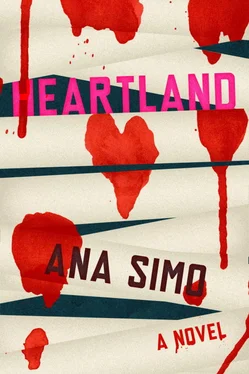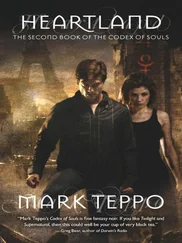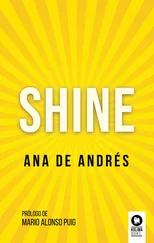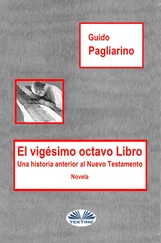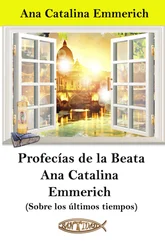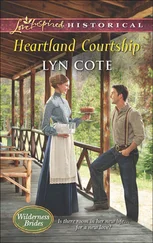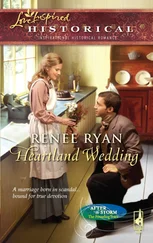
It all began in the summer of 1976 when I won the Blue Ribbon at Elmira County’s Junior Progymnasmata with “Benbassa,” an inadvertently anti-Semitic fable. In the first of a long series of obfuscations about my person, I pretended to be fifteen to qualify for the contest, when I was just eleven years, seven months, three days and seventeen hours old. At the time I composed “Benbassa,” I didn’t know any Jews, unless one counted the sweltering Rafael Cohen, which no one did, including him. That didn’t keep me from declaiming about The Jew: then, as now, I thought that ignorance about a subject is a rhetorician’s ideal state, an inoculation against false certainties. These I confined to the quickly dispatched, clichéd tale: the miserly moneylender Benbassa is stabbed to death in a dark alley of Constantinople’s Galata by one of his desperate debtors who steals his gold; the murderer, who does not know that the man he has killed is Benbassa, then rushes to the miser’s home to repay his debt. (There was a great deal of gore and mistaken identities in my youthful stories.) The fable’s heuristic meat, however, was Benbassa’s duplicitous essence and his transcendent love of gold for gold’s sake. Benbassa, the spiritual voluptuary, the absolute un-Elmiran alien, was me and I was him, as I scribbled on the kitchen table while my parents gurgled discreetly in their bedroom like oversexed carps in a stagnant pond.
Like Benbassa, I hoarded coins for spiritual pleasure and pretended obedience and ignorance in front of the adults, whom I secretly despised. I didn’t doubt having been spawned by my parents—they and the Cohens were the only spics in Elmira County at the time of my birth—but I was convinced I was a superior mutant. My parents and the Cohens were valiant, yet imperfect prototypes. As for the native white Elmirans who lorded over us from their superior heights, eleven inches above our heads on average, they were rejects from the Creator’s Divine Workshop. We feared and pitied the ugly, stupid, powerful giants. We humored them. They owned our bodies but not our minds. We kept this a secret. Thus, I knew my Benbassa inside out, like Dostoyevsky his Stavrogin, and Walt his ersatz Jew disguised as a Scottish duck. Benbassa was the Jew in me. His final punishment was also mine, a case of precocious fatalism disguised as morality: Truth will not set you free.
“Benbassa” was the first, and last, piece I enjoyed composing.
Writing made me want to puke. My mind festered with trivia, a writer’s raw sewage, but I had nothing to say. I didn’t find people or animals appetizing, so training on them a writer’s carnivorous eyes did nothing but repulse me. Nevertheless, I dared not contradict my post-Blue Ribbon reputation as a budding rhetorician because I had nothing better to do with my life: I was just a girl, brown, short, ugly, and poor, and had vowed, at age seven, never to marry some hairy, simian male. Since a precocious Blue Ribbon goes a long way in a small, fastidiously self-important county seat like Elmira, my fate was sealed. For the next four decades, I went through daily, monthly, or bi-annual writing ablutions. If those hygienic exercises were too frequent, I’d gag and faint; if too infrequent, I’d lie sleepless at night, afraid to die if I shut my eyes, and slink about in the daytime, feeling bloated and wormy with words. Every few years, I’d manage to squeeze out a tiny turd.
Why didn’t I quit when I still had time to become someone else—a gardener like my father, a maid like my mother, a janitor like Rafael Cohen’s father, Ezequiel? I spent many a sleepless night peering in vain into the Blue Ribbon thicket, pondering the mysteries of my lifelong inertia. As I curl now in this dusty crack under someone else’s deathbed, I can see it all clearly: I was born again that broiling August afternoon at the Elmira County Fair when the Blue Ribbon was pinned above my toilet-paper-stuffed bra, gluing writer skin onto birth skin amidst the award-winning cows so that any future attempt to peel it off would expose raw, pulsing flesh and result in a horrible death. A second rebirth was needed to escape the Curse. Yes, I see that now, in my inhuman clarity, but not when I still had bones, flesh, blood, hair—not even in my last fully human minutes.
So I drifted, clueless, in the arms of inertia and wishful thinking through early, middle, and late youth. For seventeen years in New York City, where I had arrived on foot in 1984, one of millions fleeing starvation in the heartland, I supported my writing curse with menial jobs (Resettlement Camp dishwasher, rat exterminator, public toilet cleaner, fetus disposal associate) and, after Reconstruction, with the greasy crumbs thrown once more to “minority rhetoricians.” Small triumphs buoyed my life raft, providing an illusion of movement. In 1992, I published a eulogy of the forgotten zoological epic Catomyomachia in The Seal , the University of Laredo quarterly. In 1995, my most prolific year, I wrote two fables for the journal Basileus , one of which ended up in a homo-bestial anthology that was reviewed in The New York Times . That was my one flirtation with fame, although neither my story nor my name was mentioned in the review, given that my writing lacked sex, AIDS, and the compulsory people-of-color winks.
After a long drought, during which I got unfashionably addicted to Seconal, I hustled one of those spics-only-need-apply welfare stipends to write a biography of one Teodora Comenia del Castillo (1820–1877), reputedly the first Hispanic [ sic ] woman to write a novel in English. It was a laughable yarn and Teodora was a picayune prig, ever lamenting her hacienda and maids lost to the barbarians from the North, but the welfare money was irresistible. The best part was that I didn’t have to write a word until I finished researching the subject, something that, given its obscurity, could take several centuries. Those were the happiest years of my life (2001–2011). I did nothing but eat, drink, fuck, sleep, fall deliriously in love, once (Oh Bebe, why?), and, in the glorious year 2001, cop some snowflakes for breakfast from the mounds that Zoë, my tranny Pre-Raphaelite roommate, left every night on the kitchen table, along with the business cards of her dazzled providers, corporatist America’s most exalted retainers. Every morning, during this breakfast of champions, I dreamt of blackmail, but innate sloth and virtuous shock—The names I saw! The immaculate blond wives and children I imagined!—kept me from acting. I’ve kicked myself ever since for having lost the only opportunity I ever had to earn big bucks and still feel morally superior.
We both slept through 9/11, Zoë and I, after an early dawn snow binge. When we woke up, well past midnight, her cell phone was clogged with the cries and sobs of the haute corporatist dead and survivors. One man begged her as he died to rush to his midtown office before his wife got there and remove an Altoids can filled with smack from the top drawer of his desk. His secretary would help. Others, the dying and the survivors confounded, wanted to see her, touch her, smell her, fuck her, snow-dive with her. Right now. I escorted Zoë on her nocturnal mercy rounds from the Pierre to the St. Regis, and from the Waldorf to the Carlyle. On that Luciferian night, hotels were the last havens of civility in Manhattan. Only inside their well-ventilated bars could you unclog your nostrils of the stench of tire-collar death that permeated the island. Corporatist offices, where Zoë conducted much of her business, had turned into armed camps.
Читать дальше
